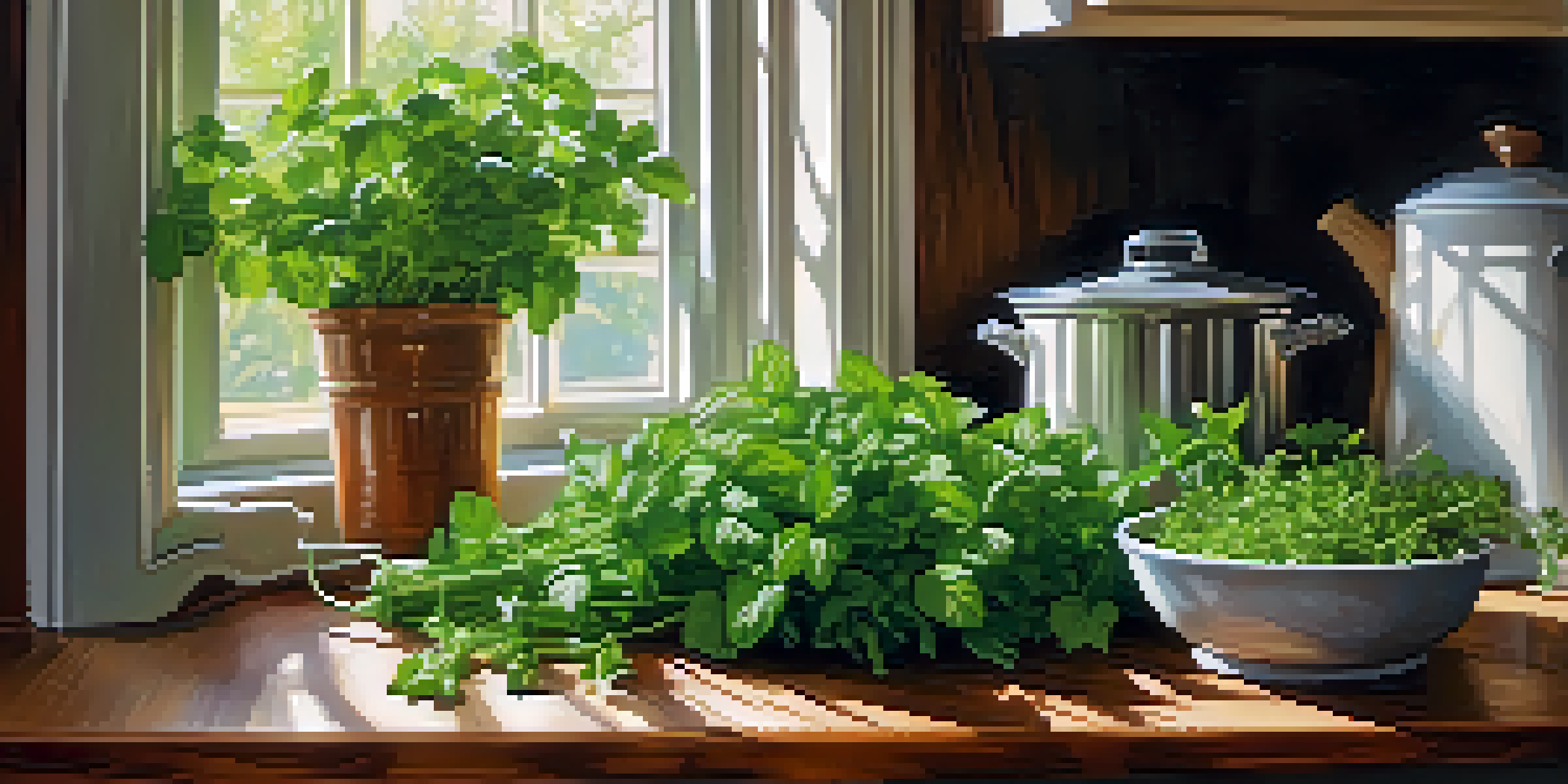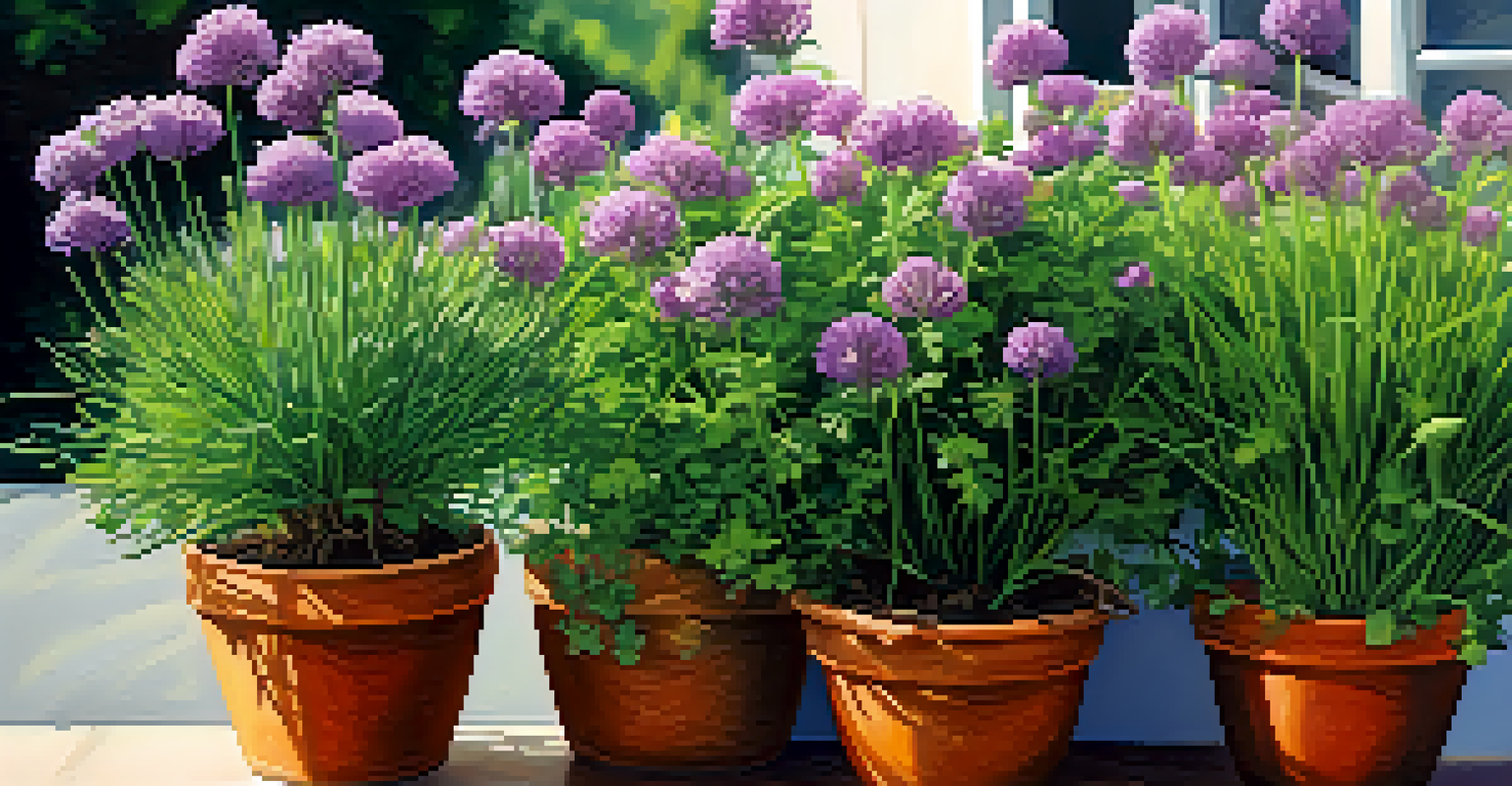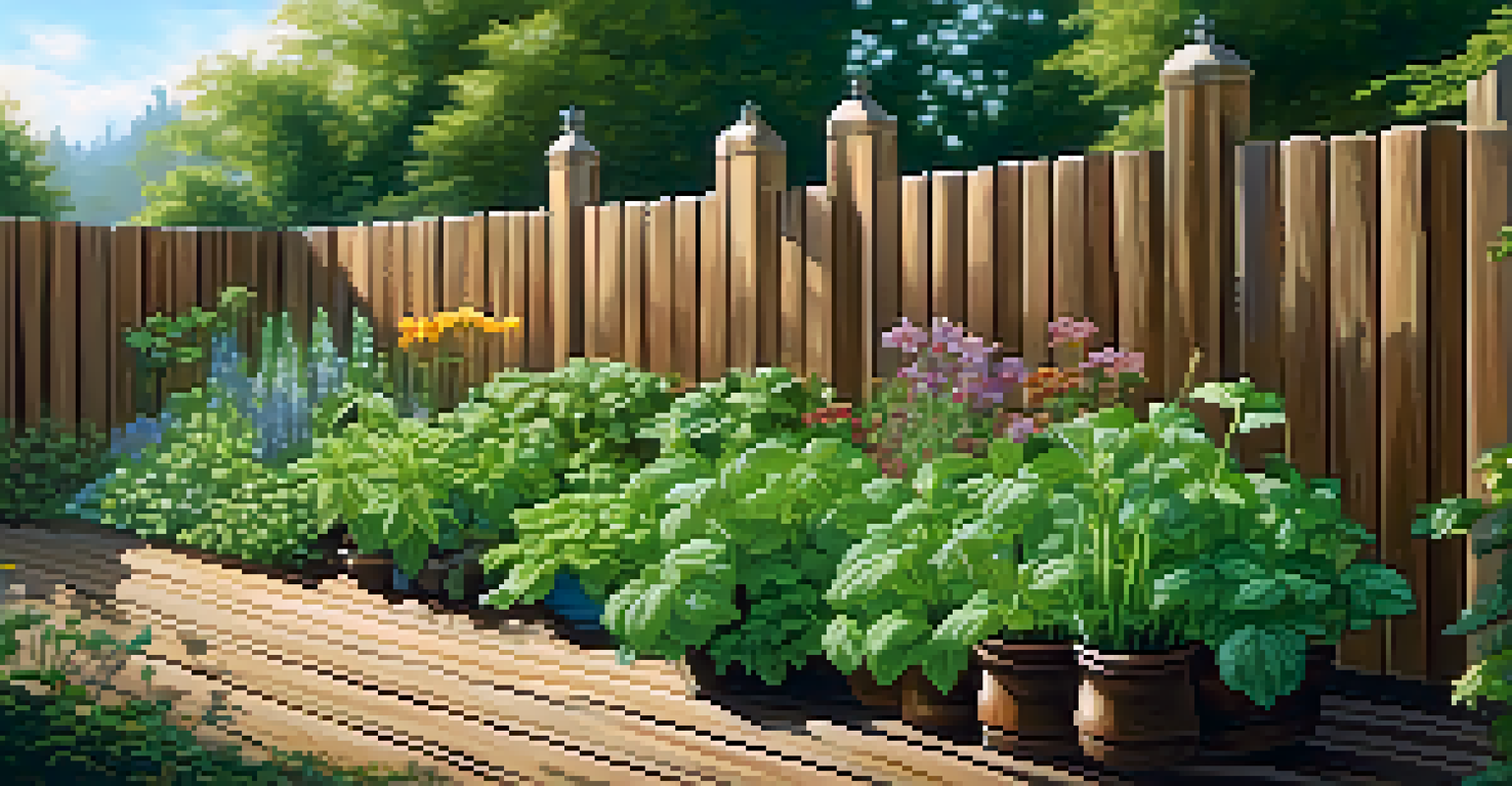Essential Herbs for Vegan Cooking: Grow Them at Home Easily

Why Grow Your Own Herbs for Vegan Cooking?
Growing your own herbs can transform your vegan cooking experience. Fresh herbs not only enhance the flavor of your dishes but also add nutritional value, making your meals more satisfying. Plus, there's something incredibly rewarding about cultivating your own plants right at home.
Herbs are the spice of life, adding flavor and depth to our meals, and nurturing our connection to the earth.
Imagine stepping into your kitchen, snipping a few fresh basil leaves for your pasta sauce, or adding a sprinkle of homegrown parsley to your salad. The vibrant taste of freshly picked herbs is simply unmatched and can elevate even the simplest meals.
Additionally, growing herbs at home is cost-effective. Instead of buying expensive packets at the store that might go bad before you use them, you can harvest just what you need, ensuring freshness and reducing waste.
Basil: The Versatile Kitchen Favorite
Basil is a staple in many vegan recipes, and for good reason. Its sweet, aromatic flavor pairs wonderfully with tomatoes, making it perfect for sauces, salads, and even pesto. Plus, it’s easy to grow both indoors and outdoors, needing just a sunny spot and regular watering.

To cultivate basil, start with seeds or small plants in well-draining soil. Keep it in a warm area with plenty of sunlight, and remember to pinch back the leaves to encourage bushy growth. Before you know it, you'll have an abundant supply of fresh basil at your fingertips.
Fresh Herbs Enhance Vegan Meals
Growing your own herbs not only elevates the flavor of vegan dishes but also adds nutritional benefits.
Using basil in your dishes not only adds flavor but also brings a range of health benefits. It’s packed with antioxidants and has anti-inflammatory properties, making it a fantastic choice for your vegan meals.
Mint: A Refreshing Addition to Your Dishes
Mint is another essential herb that can easily elevate your vegan cooking. Its refreshing flavor can brighten up drinks, salads, and desserts, making it a versatile choice for various recipes. Plus, mint is incredibly easy to grow, often thriving in pots or garden beds without much fuss.
Growing your own food is like printing your own money.
Plant mint in a pot to contain its growth, as it can spread rapidly. Give it plenty of sunlight and keep the soil moist for optimal growth. You'll soon find yourself with a lush supply of mint leaves ready to be harvested.
In addition to its culinary uses, mint is known for its digestive benefits and aromatic properties. Adding fresh mint to your meals can provide a delightful burst of flavor while supporting your overall health.
Parsley: The Nutritional Powerhouse
Parsley is not only a garnish but also a powerhouse of nutrition that can enhance your vegan dishes. Rich in vitamins A, C, and K, parsley offers a fresh, earthy flavor that complements a wide array of dishes, from soups to salads and everything in between.
Growing parsley is straightforward; it thrives in well-draining soil and partial sunlight. You can start from seeds or buy small plants, and once established, it requires minimal care, making it a perfect herb for beginners.
Easy-to-Grow Herbs for Every Kitchen
Herbs like basil, mint, and parsley are simple to cultivate, making them accessible for both novice and seasoned gardeners.
Incorporating parsley into your meals not only boosts flavor but also adds a nutritional punch. A sprinkle of fresh parsley can transform your dish while providing essential nutrients your body craves.
Chives: The Subtle Onion Flavor
Chives are a fantastic way to add a subtle onion flavor to your vegan dishes without overpowering other ingredients. Whether sprinkled on soups, blended into dips, or used in salads, chives can enhance your meal's flavor profile beautifully.
These hardy herbs are easy to grow from seeds or divisions and can thrive in a variety of conditions, including pots on your windowsill. They require little maintenance and can be harvested regularly, promoting continuous growth.
Rich in vitamins A and C, chives are not only flavorful but also nutritious. Their mild taste makes them a perfect addition to a range of dishes, allowing you to enjoy both flavor and health benefits effortlessly.
Cilantro: A Bold Herb with Distinct Flavor
Cilantro is known for its bold, distinctive flavor that can truly make a dish stand out. Often used in salsas, curries, and salads, cilantro adds a freshness that is hard to replicate. Growing cilantro at home allows you to enjoy its vibrant taste straight from your garden.
To grow cilantro, sow the seeds in well-draining soil with ample sunlight. This herb tends to bolt quickly in hot temperatures, so it's best to plant it in cooler months or provide some shade during the hottest part of the day.
Gardening Connects You to Food
Cultivating herbs at home offers a rewarding experience that enhances culinary skills and promotes a connection to your meals.
Beyond its culinary uses, cilantro is also recognized for its potential health benefits, including antioxidant properties. Incorporating it into your meals can not only enhance flavor but also contribute to your overall wellness.
Thyme: The Aromatic Herb for Savory Dishes
Thyme is a must-have herb for any vegan kitchen, thanks to its aromatic flavor that enhances savory dishes beautifully. It works wonderfully in soups, stews, and roasted vegetables, adding depth and complexity to your meals.
This hardy herb can be grown indoors or outdoors with minimal effort. Thyme prefers well-drained soil and full sunlight, and once established, it can withstand dry conditions, making it a low-maintenance choice.

With its rich flavor and numerous health benefits, including antibacterial properties, thyme is an excellent addition to your vegan cooking arsenal. Plus, its fragrant aroma can fill your home with a delightful scent as you cook.
Growing Herbs: Tips for Success
Successfully growing herbs requires a few simple tips to ensure they thrive. Start with quality seeds or plants, and choose pots or a garden spot that receives plenty of sunlight. Regular watering and well-draining soil are key factors in promoting healthy growth.
Consider grouping herbs with similar water and light requirements together. This not only simplifies your gardening tasks but also creates a beautiful and fragrant herb garden that can be easily accessed from your kitchen.
Lastly, don’t forget to enjoy the process! Gardening can be a therapeutic activity that connects you to your food. Watching your herbs grow and then using them in your cooking is a satisfying experience that enhances both your culinary skills and your meals.